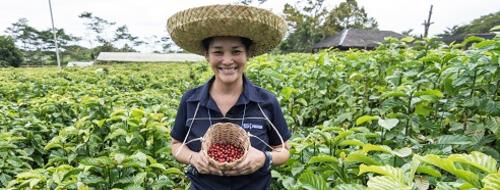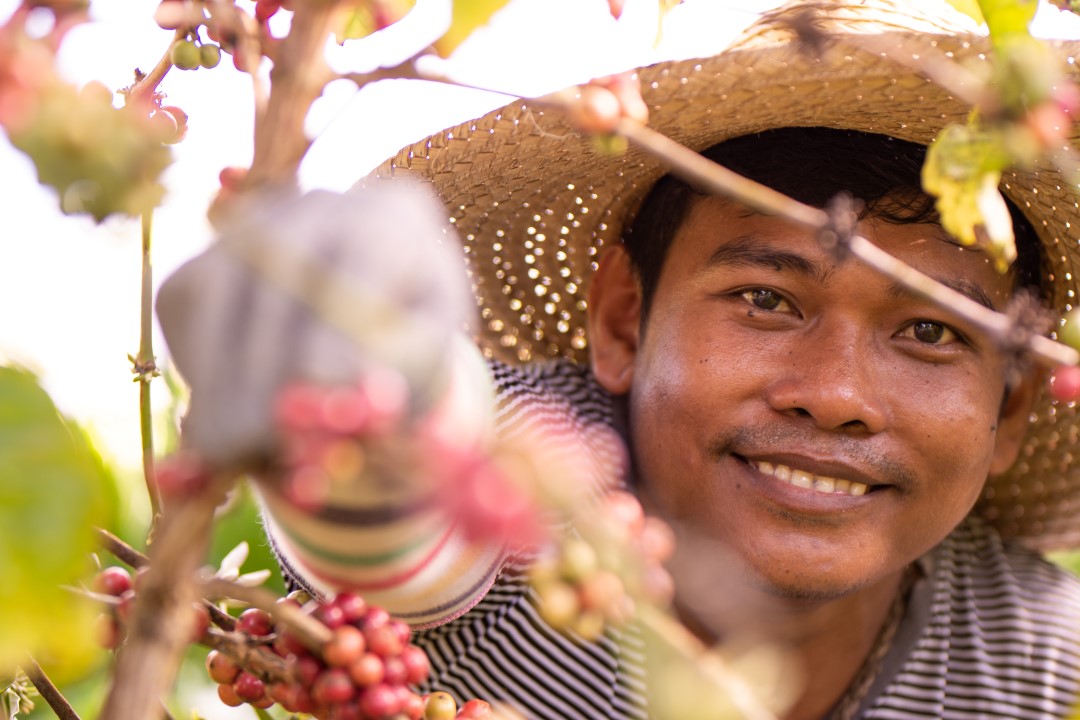Tackling the Plastics Challenge
Our initiatives as the Kasambuhay ng Kalikasan
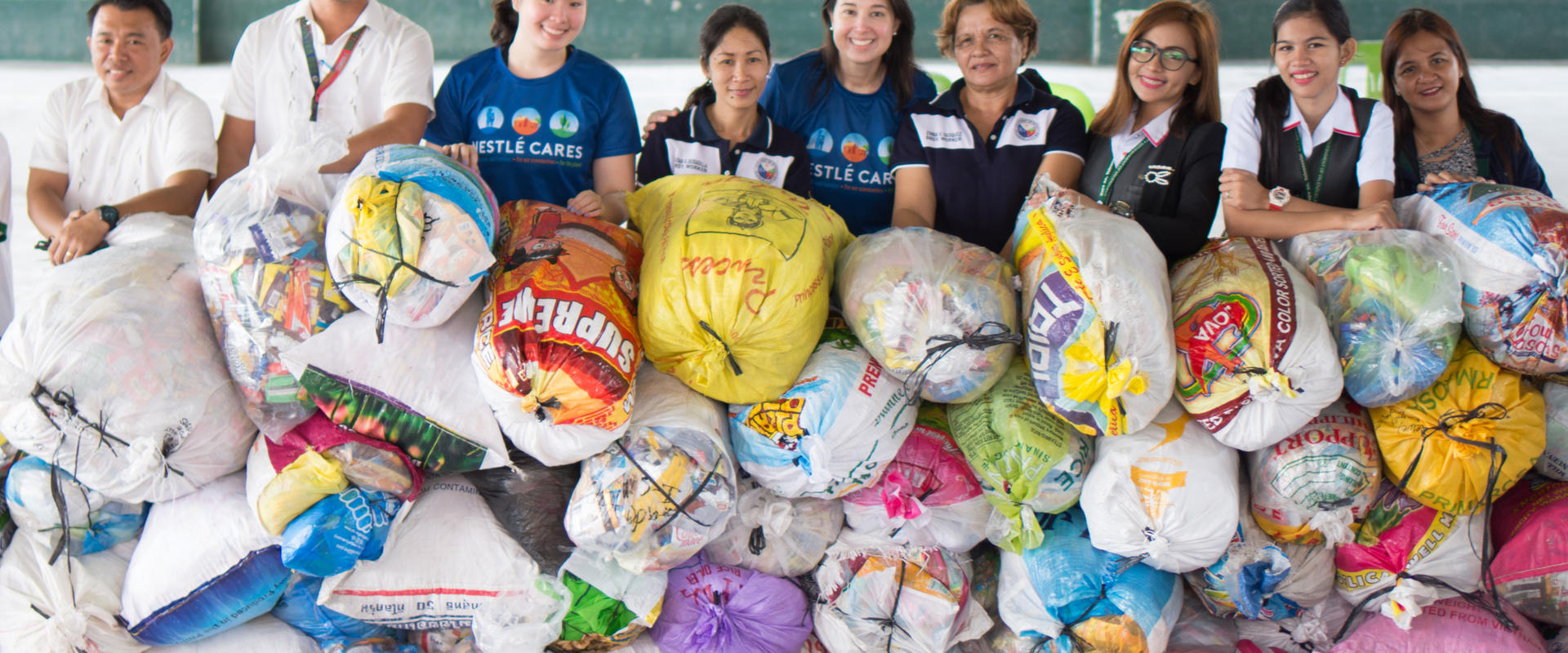
Our Vision and Commitment
Our vision at Nestlé is that none of our packaging, including plastics, ends up in landfill or as litter.
In April 2018, we announced our commitment to make 100% of our packaging recyclable or reusable by 2025. We have further announced that we will reduce our use of virgin plastic by one third in the same period. Before 2025, we will work as quickly as we can to achieve plastic neutrality – to recover the equivalent of the amount of plastic that we generate. We will achieve our commitments by acting in three focus areas: developing the packaging of the future; helping shape a waste-free future; and driving new behaviors and understanding.
To learn more about our global commitments, click here.
Our Commitment in Action
Nestlé Philippines acts on these commitments in the Philippine context by developing sustainable initiatives that can make a tangible impact in different communities.
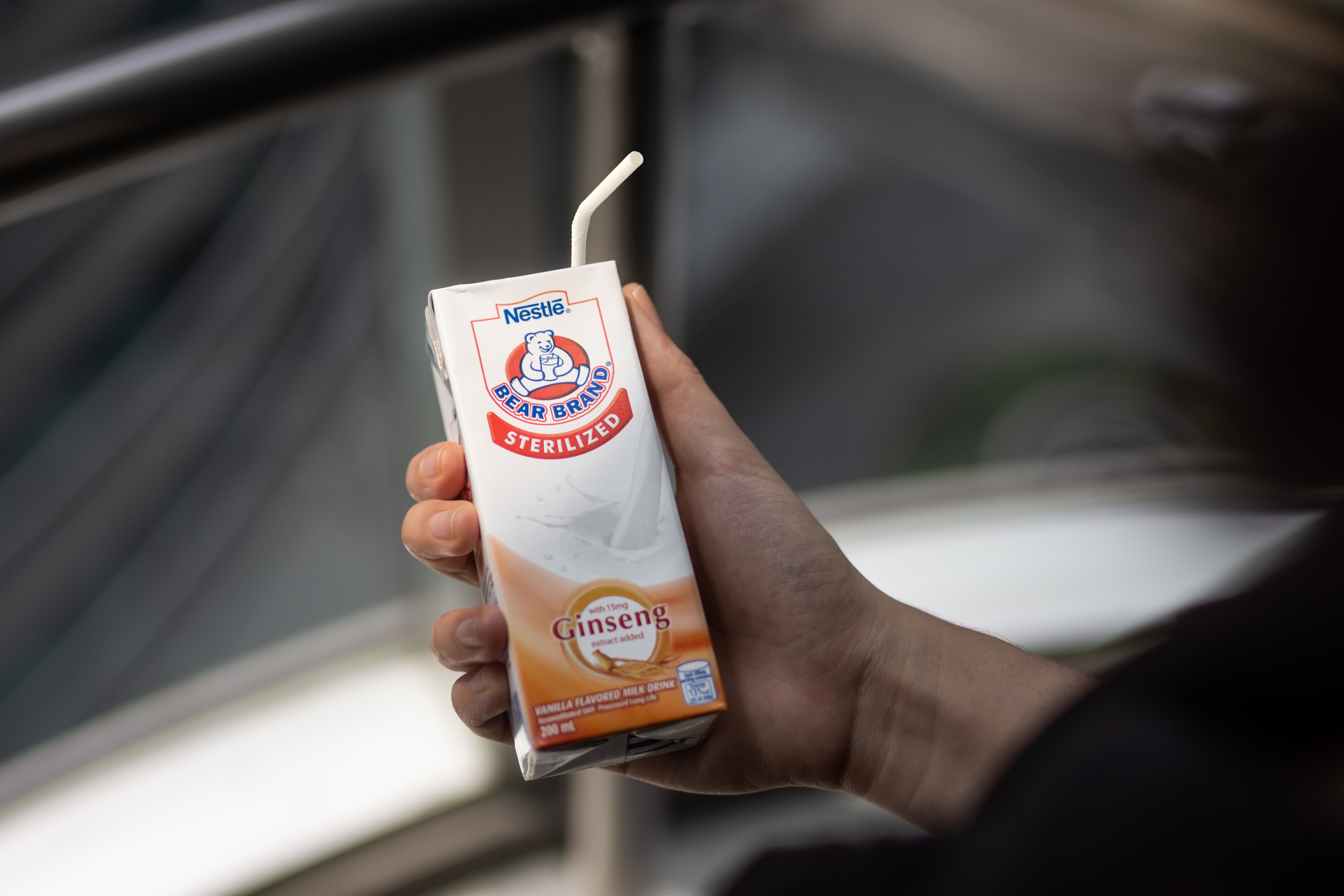
Develop Packaging for the Future
Since 1993, Nestlé Philippines has progressively reduced the amount of its packaging including plastic, or removing the packaging altogether, while continuously ensuring product quality and safety.
- By the end of 2020, all our Ready-to-Drink (RTD) products will have transitioned to paper straws. Read more about this achievement here.
- We are working on a shift to mono-material packaging for our products. This transition will make our sachet packaging designed for recycling without sacrificing the quality and safety of our products.
- Alternatives to our secondary packaging are being explored in the Philippines. From paper bands to loose packs, we aim to identify as many options as possible to eliminate the need for the plastic polybag.
- We have started the use of recycled materials in our promo materials through paper bands for our RTD products and free notebooks and calendars. We continue to integrate upcycled items to decrease the need for virgin materials.
- The capability to refill containers can make an impact on wastes. Therefore, we are testing dispensing systems that enable our customers to store and dispense our products safely.
- We aim to reduce the amount of plastics that we use throughout our whole supply chain. Since 2019, we have been transitioning to the use of water-soluble adhesive to secure our cases in transit in place of traditional plastic cling wrap.
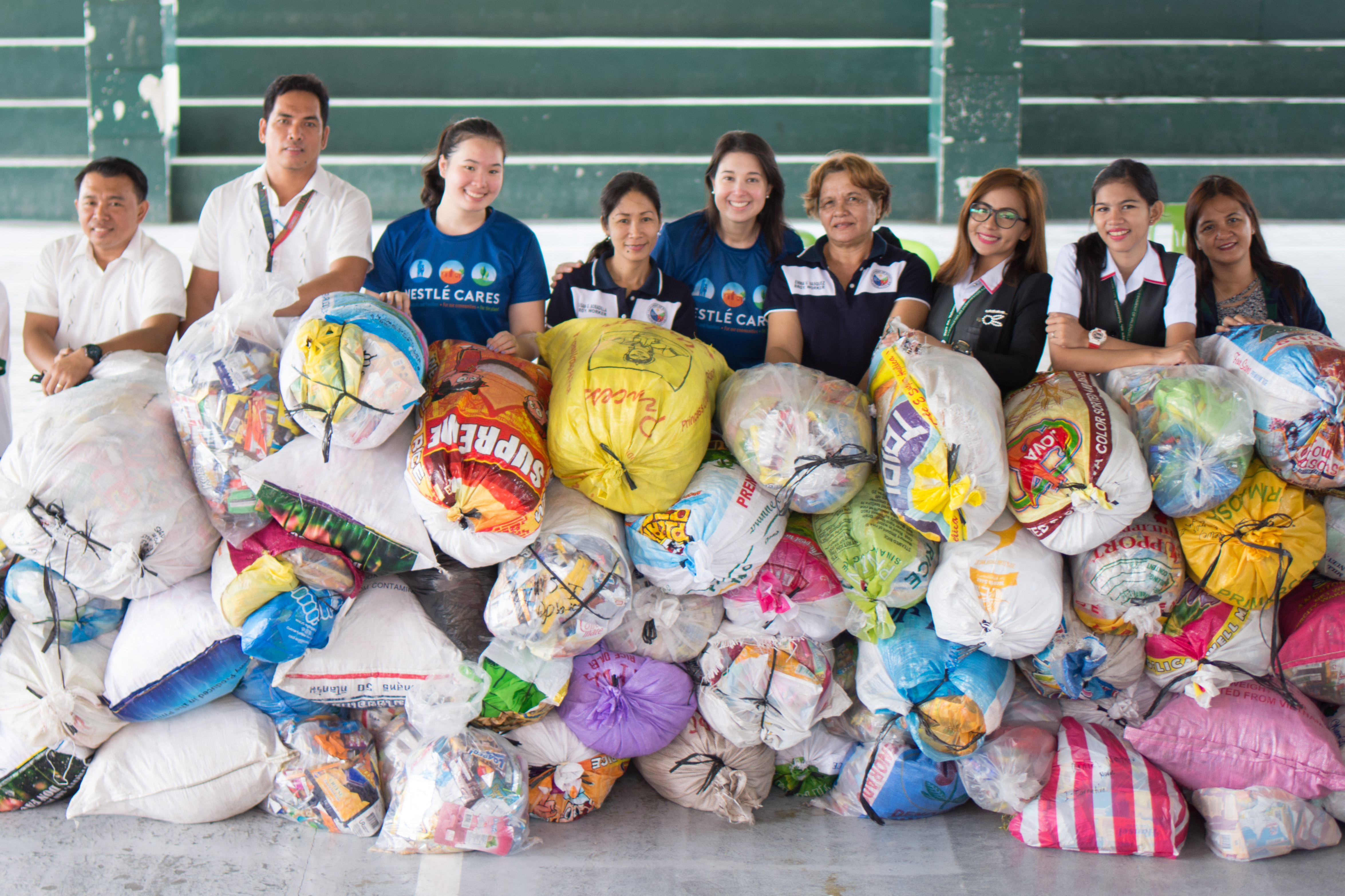
Help Shape a Waste-free Future
We believe that while the search for innovative packaging solutions is ongoing, immediate action must be taken to stop leakage into waterways and oceans, and to find ways to recycle packaging. Thus, we continue to explore multiple plastic collection schemes.
- In 2019, we piloted the country’s first and only city-wide collection program called May Balik sa Plastik (There’s a Return to Plastic) in partnership with the city government of Valenzuela City. This program successfully diverted a total of 55 metric tons of plastic in five months. Read more about our flagship collection project here.
- Founded by a former Nestlé engineer, Green Antz Builders develops high-quality building materials that incorporate shredded plastics. We have been working closely with Green Antz and partner Local Government Units (LGUs) to establish Eco-brick hubs. Read more about one of these Eco-brick hubs here.
- GoodFood.ph offers convenient subscription plans for consumers with regular deliveries of their favorite RTDs right at their doorsteps. In 2019, we added a collection service to recover the used cartons from subscribers and upcycle them into promo materials used by our brands.
- Our brands are doing their part to address the plastics challenge through their own collection campaigns. MAGGI collects sachets in its on-ground activities and BEAR BRAND collects used packs and upcycles those into Tibay Chairs.
- In countries like the Philippines where recycling infrastructure is limited, we believe in collective action and cooperation to find solutions. We have initiated partnerships with fast-moving consumer goods (FMCG) companies, industry associations, government and non-government organizations, academe and recyclers through the Philippine Alliance for Recycling and Materials Sustainability (PARMS). Since its inception, PARMS has launched a Plastic Waste Recovery Program in seven pilot schools and their communities, in cooperation with the Parañaque City Community Environment and Natural Resources Office (CENRO), and the Department of Education. PARMS members have also set up a plastics recycling facility in Parañaque City. The facility houses extrusion and eco-brick equipment that will recycle post-consumer laminates.
- Nestlé is committed to driving lasting and meaningful change to make a difference, starting within our own organization. Since 2016, we have achieved zero waste to landfill in all our factories.
- Among our initiatives to achieve plastic neutrality, Nestlé Philippines has entered into partnerships with Republic Cement and CEMEX Holdings Philippines to co-process soft plastic wastes in cement kilns.

Drive New Behavior and Understanding
Effectively addressing the plastic waste challenge requires behavior change from all stakeholders in society.
- We organize ocean clean-up activities for our employees to volunteer for and participate in.
- In 2018, we launched an internal sachet collection initiative in our offices and factories, aiming to create awareness and promote participation, to encourage segregation at source.
- Early this year, Nestlé Philippines offices started using metal cutlery and drinking glasses and are single-use plastic free. Employees are encouraged not to accept plastic forks and spoons with food deliveries.
- We recognize the need to extend responsible solid waste management beyond the confines of our operations. In this regard, the company provides training in solid waste management in barangays in Valenzuela City for barangay officials, teachers, and volunteers, as well as information dissemination to residents. Similar communication and education efforts are conducted in communities where Green Antz Eco-brick hubs operate.
- We are tapping the Nestlé Wellness Campus network of public school students and their parents to disseminate solid waste management modules teaching the importance of being mindful of our purchases, the 3Rs, and proper segregation of waste.
- Our brands have started to integrate proper waste disposal communication on our packs, an example of which is communication on RTDs for the consumer to push the straw back into the pack.
Shaping a waste-free future is a long and challenging journey requiring much innovation, determination, learning, and effort. As stakeholders, all of us need to make the journey together, to work together with optimism, in order to achieve successes along the way.
Kais Marzouki
Chairman and CEO
Nestlé Philippines, Inc.
